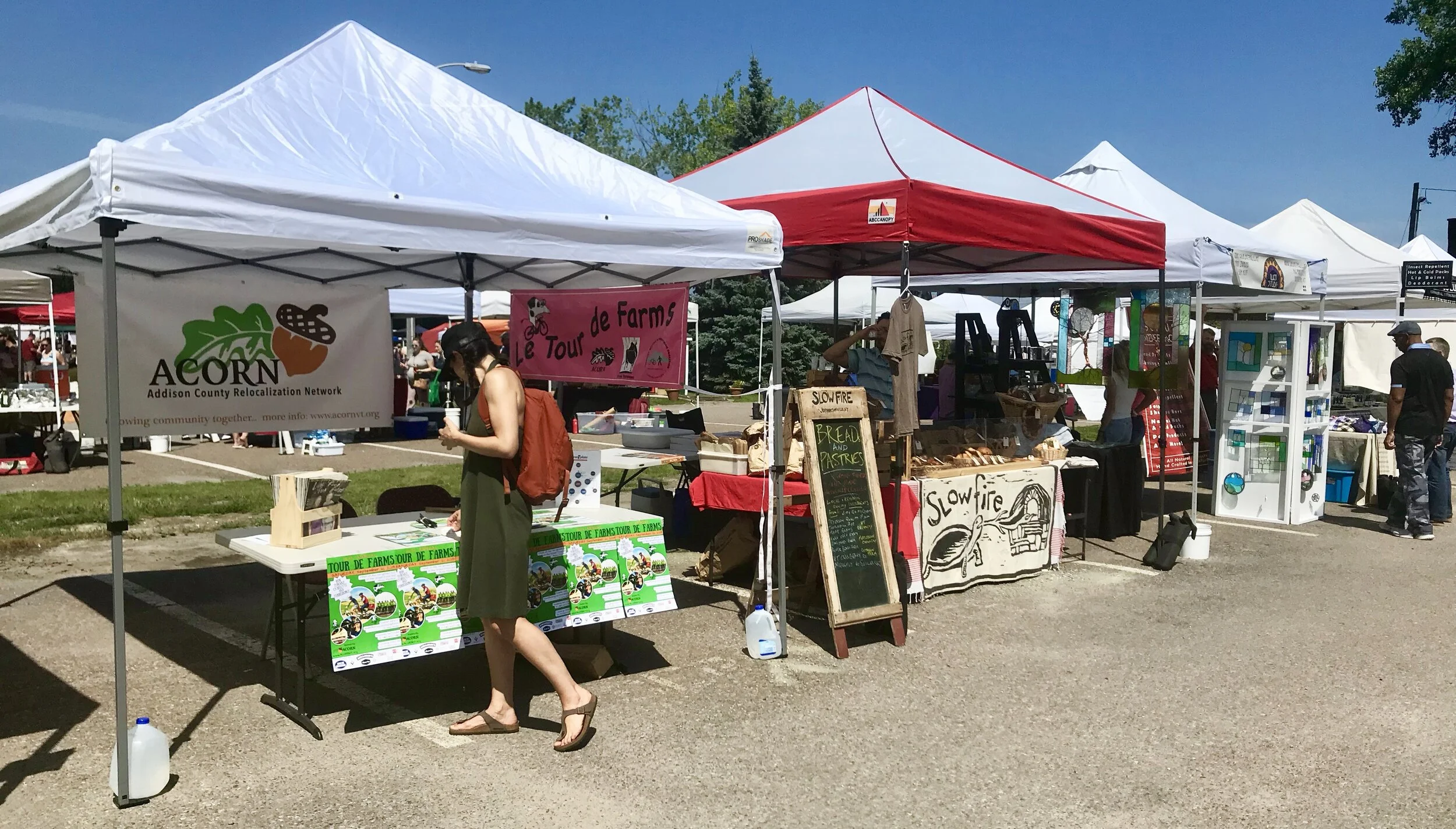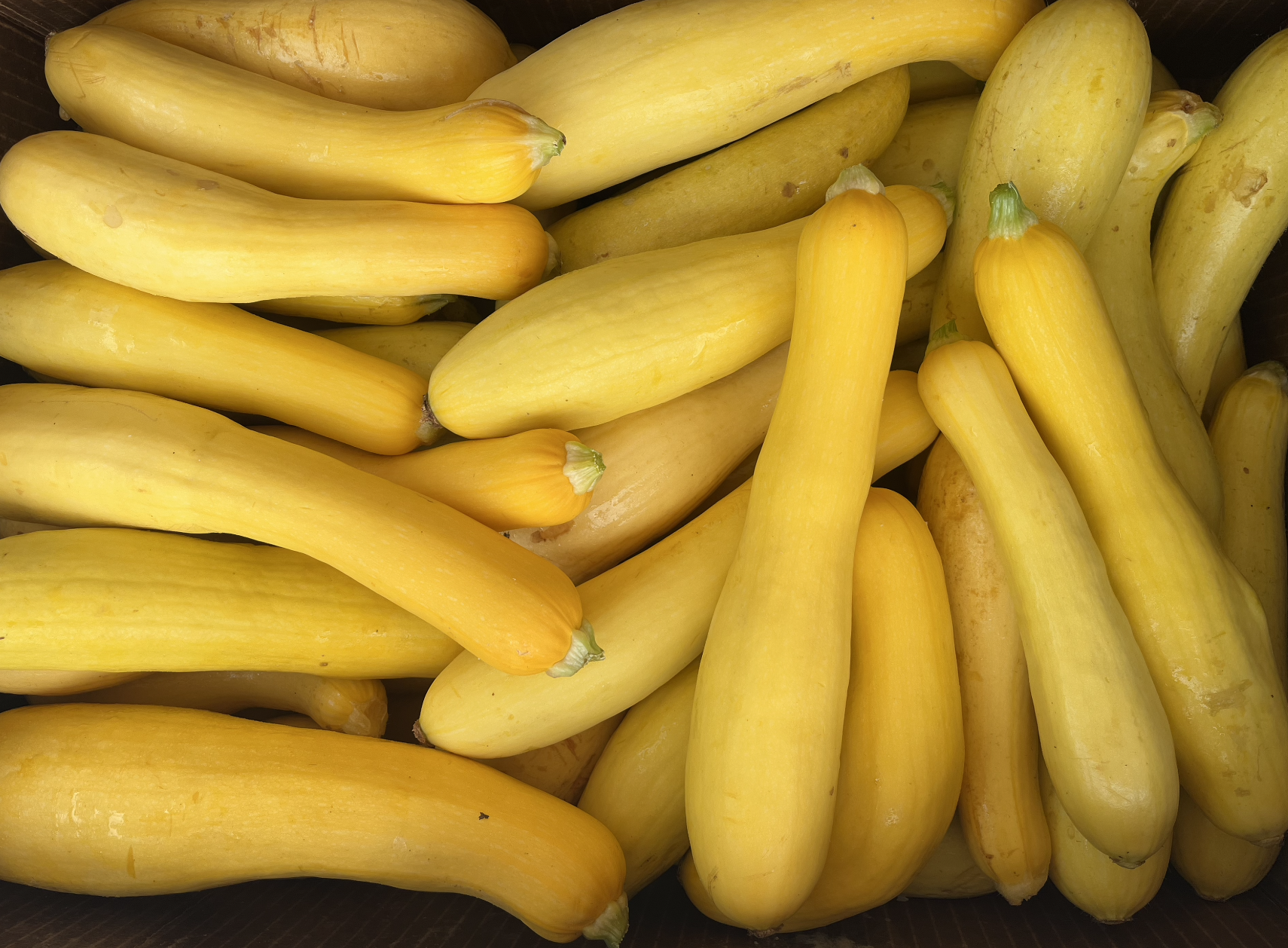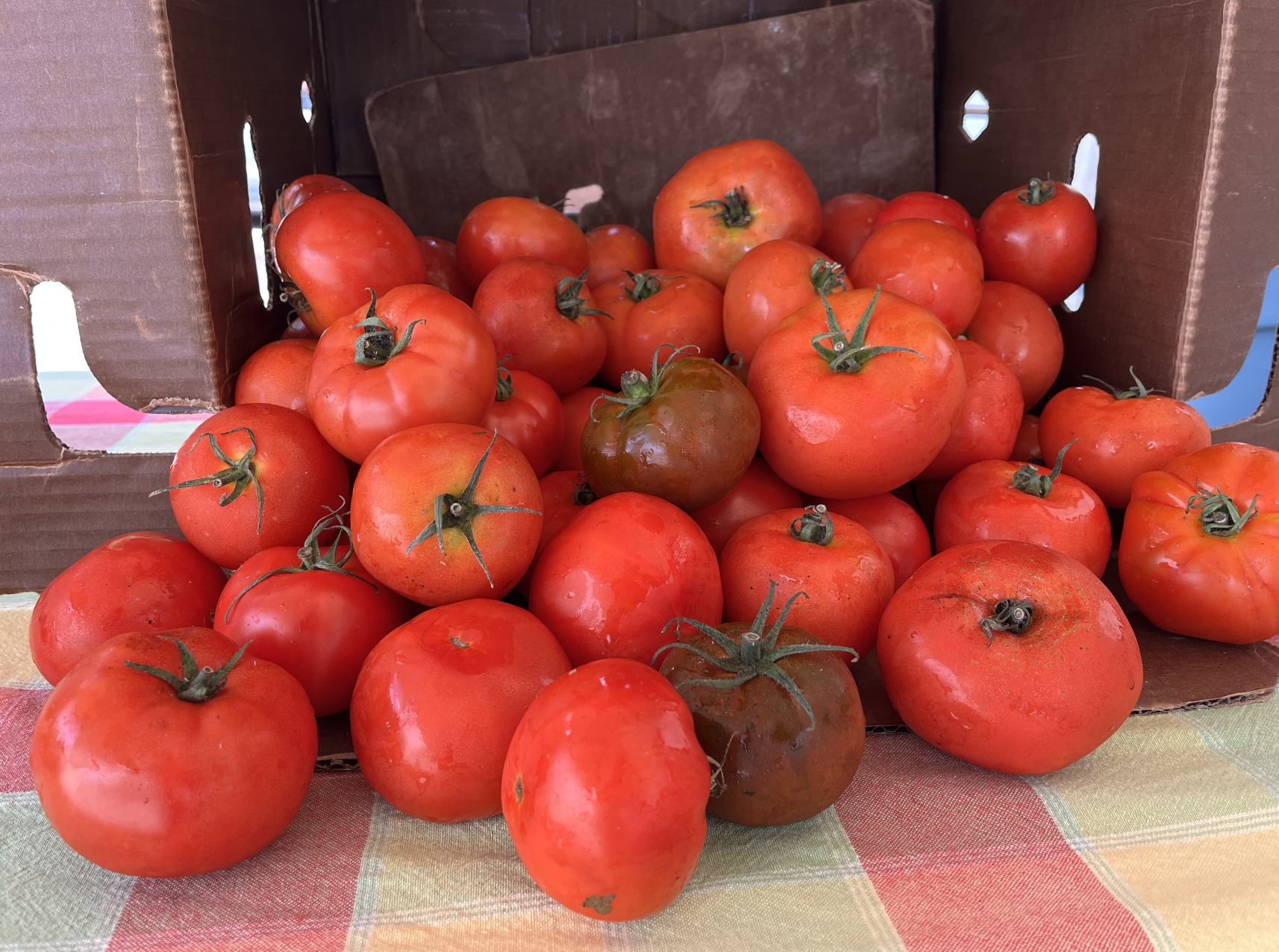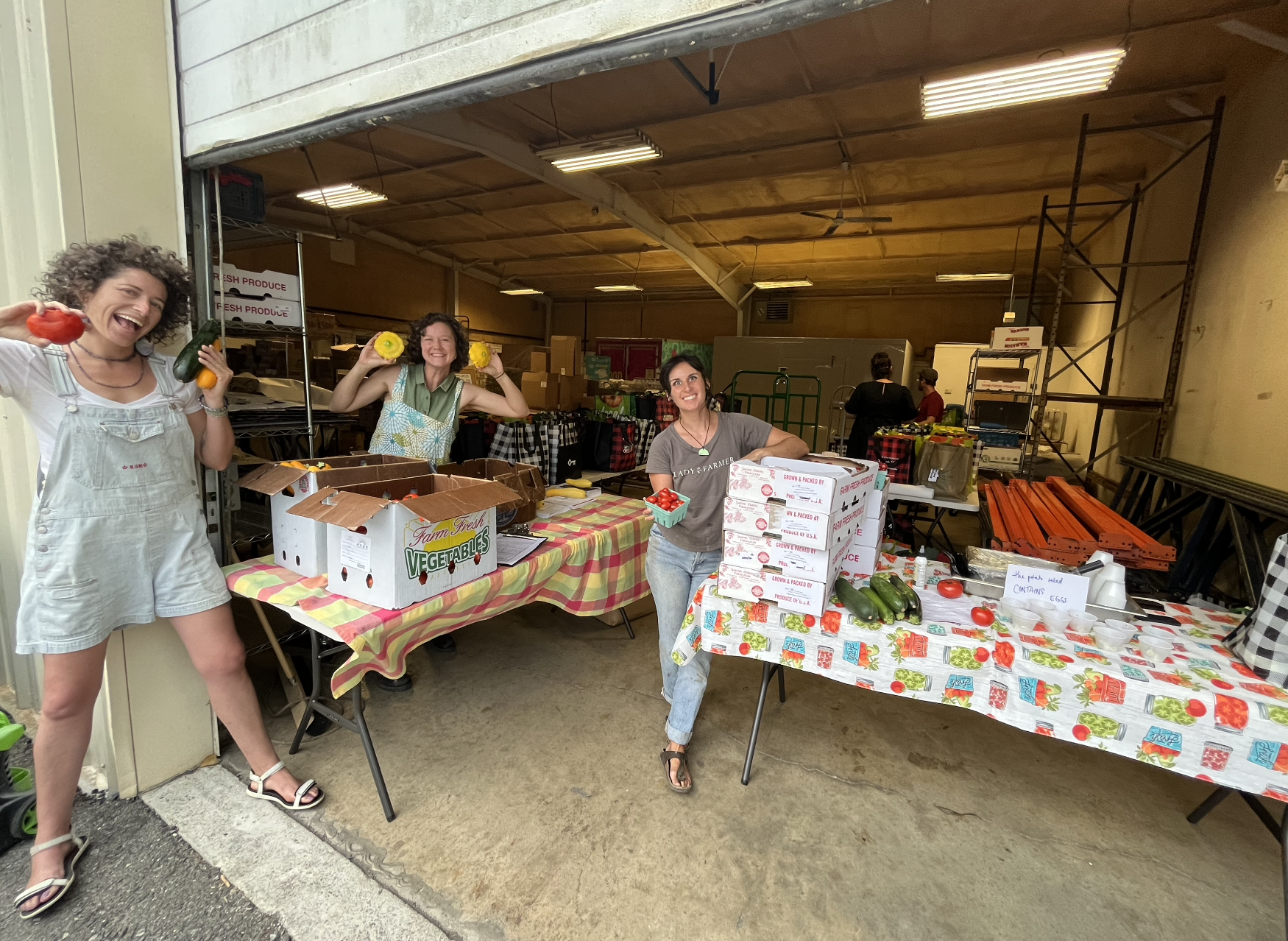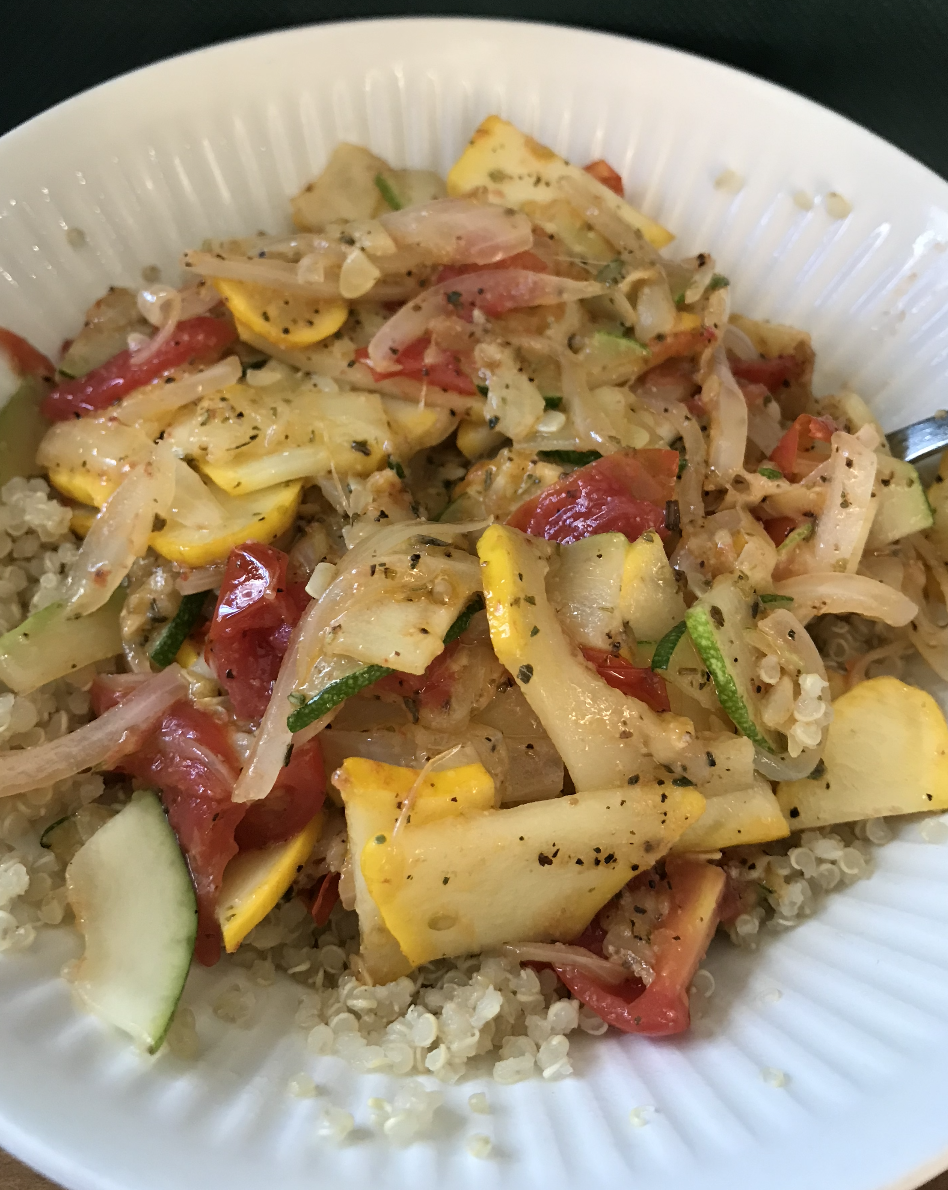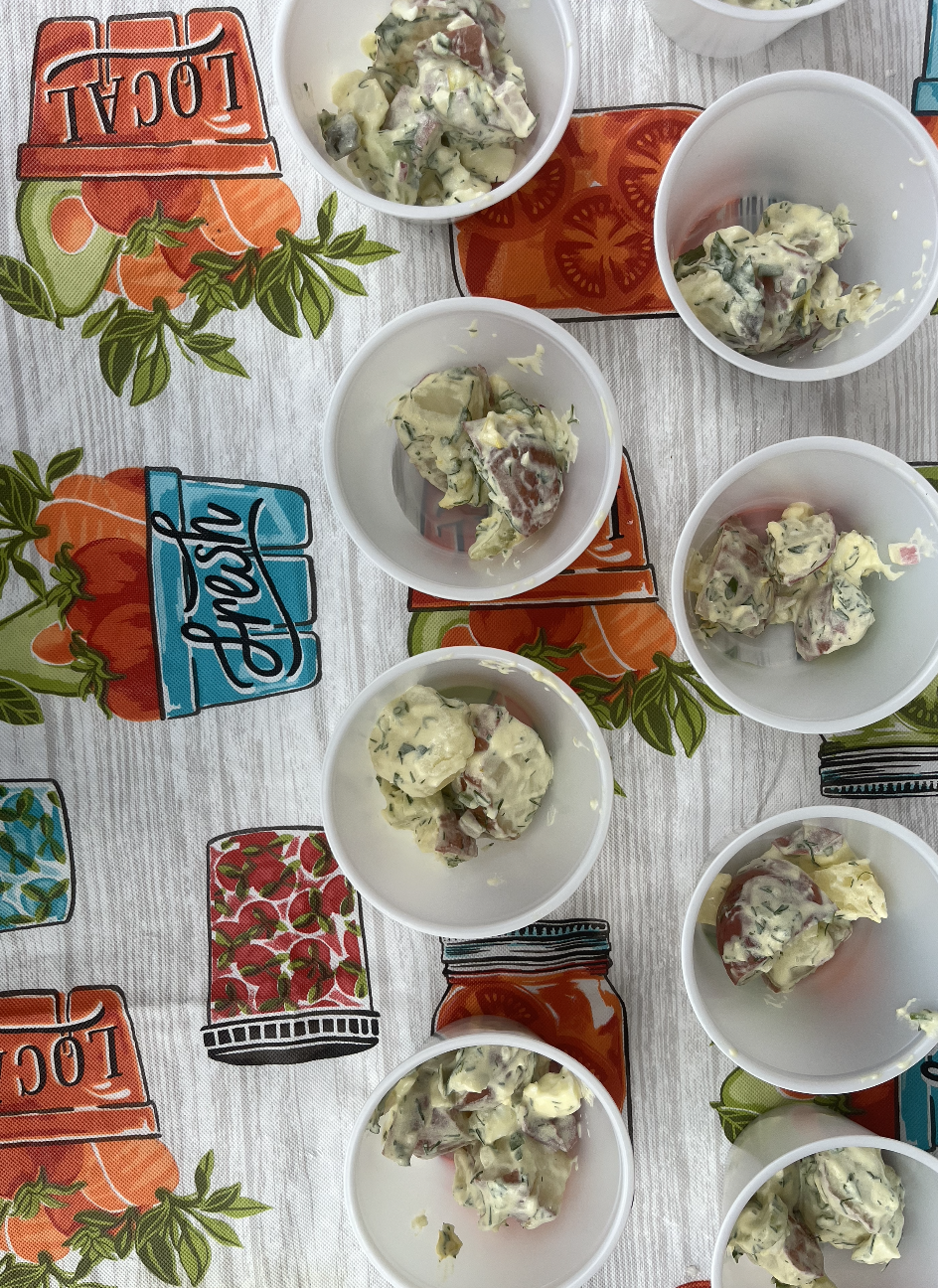Creating well-being in people, place, and the planet at the Knoll
/By Jessica Buxbaum, ACORN Intern
On the Eastern edge of Middlebury College’s campus along Route 125, there’s a mound of fertile ground used as the college’s organic garden -- affectionately nicknamed the Knoll. In August, it’s lush with vegetables, herb bushes, and fruit trees; year-round, volunteers and interns work to keep the beds bountiful and productive. But the Knoll is about much more than productivity.
Megan Brakeley, the college’s Food and Garden Educator, manages the whole operation. She sees gardening as holding worlds within it, and wants the Knoll to be a place for people to connect with the earth, their community, and themselves. Producing a lot of food in the process is just the gravy, she says.
She became interested in farming, gardening, and environmental work in college, when ideas like carbon footprints and food miles were just starting to enter the public consciousness, and when a group of her classmates and friends at Middlebury were gearing up to found 350.org.
Having grown up in a conservative community that was not very environmentally minded, she embraced her own not-knowing and started asking questions about the entwinement of food, farming, and global environmental issues.
This curiosity led her to her first farming experience -- a year-long internship after graduation at a junior boarding school with a fully functioning organic farm and a robust garden education program. There, she learned how to operate farming equipment, manage pastures, grow food, slaughter animals, and, significantly, how to teach these skills to others.
She took over as the Food and Garden Educator in 2018, the first year that the Knoll was absorbed into the college’s budget. The students that spearheaded the Knoll’s creation in 2002 never intended for the Knoll to compete with local producers, but 15 years after its first growing season in 2003, the Knoll’s operating budget had had to come entirely from its produce sales.
This financial shift in 2018 gave Megan, and everyone else involved with the Knoll, the freedom to pursue programming, partnerships, practices, and conversations that align more closely with the Knoll’s mission: to explore food as a medium to create well-being in people, place, and the planet -- not to produce food for profit.
Last summer when student internships at the Knoll were canceled due to Covid, instead of shutting down the Knoll’s operations, the college allowed the garden to continue operating to meet emergency food needs in Addison County and paid four dining hall workers for full-time work at the Knoll. Determining what exactly the food needs in the county were was done in collaboration with HOPE, which the Knoll has a longstanding partnership with. The Knoll ended up growing mostly butternut squash, garlic, and onion, because those are staple crops for production farms that rarely get donated or gleaned for HOPE’s food shelf.
The Knoll has also been able to develop a new relationship with Chief Don Stevens after he approached Megan about growing native crops with the goals of producing more native seeds, providing education about the Abenaki nation, and providing food for Abenaki food security programs.
Educational partnerships with classes have always been part of the Knoll’s goals, as well. Most recently, the Knoll has started growing kernza and silphium, two perennial crops, as part of the New Perennials Project.
Beyond creating wellness by filling stomachs and minds, Megan sees the Knoll as a place for healing and grounding.
Because it isn’t a production farm, they have the freedom to slow down and experiment with different practices like no-till farming, and farming by hand instead of using machines for most tasks.
In the context of a changing climate, student interns and student and community volunteers have the opportunity to create their own knowledge base about concepts that get easily complicated by theory and doomsaying. What does a drought look like and feel like in this place? What does a warm winter mean for the rest of the growing season? They can see it all for themselves.
There’s also room for playfulness and celebrating the parts of ourselves -- our embodied humanness, our physical capabilities, our creativity, our curiosity -- that aren’t often celebrated in the classroom or elsewhere. I have given my own time volunteering at the Knoll over the past year and a half, and I can say from personal experience that this is a deeply empowering and critically important part of the Knoll’s operations.
Throughout her life and throughout her time at the Knoll -- even as she has become an expert gardener and has spent decades thinking about food, agriculture, and global challenges -- Megan says she has tried to keep hold of a “beginner’s mind” -- a concept in buddhist philosophy about approaching all things with openness, eagerness, and curiosity.
She is looking forward to welcoming community members back to the Knoll in the near future and to continue supporting students as they work to make the Knoll a supportive, welcoming, and fun place to explore themselves, the world, and everything in between.

